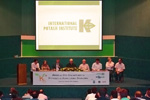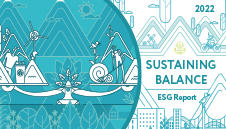

|
An important part of Uralkali’s activities in Russia is to support balanced nutrition of crops, in which potash fertilisers play an essential role. For many years, the Company has been conducting special experiments and trials to determine optimal potash application rates for various crops in different regions of Russia as joint projects with the Pryanishnikov Institute of Agrochemistry, the International Plant Nutrition Institute (IPNI), and a number of industry-specific research institutes and agricultural producers. Below is the list of these joint projects:
Lipetsk, Voronezh, Rostov and Belgorod Regions:
Belgorod Region:
Voronezh Region:
Rostov, Volgograd, Altai, Primorsky and Moscow Regions:
Rostov Region:
Tambov Region:
Republic of Mordovia:
Republic of Chuvashia:
Kirov Region:
Krasnodar Region:
Astrakhan Region:
The Сompany has prepared and published the book titled "Potassium — a key element of plant nutrition" (available in Russian), which summarizes the accumulated experience of industry experts as well as Uralkali's own experience. |

















